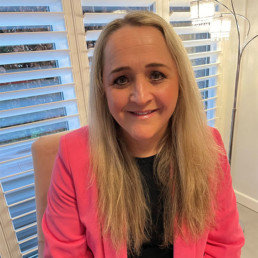
Written by Liz Cartledge
Senior Vice Principal at a large Secondary School in Sheffield. Leader of Inclusion, Behaviour and Designated Safeguarding Lead. Liz is the mother to twin girls and returned from maternity leave in September 2020.
As a leader, the constant care of students and staff is arguably the most important and biggest responsibility in the long list of daily tasks. Getting the balance right and knowing what to do in each unique case can be hard.
It is true that we learn through our mistakes, however, sometimes it is helpful to be able to reach for some real-life guidance. Sometimes the hardest of experiences can make us the strongest. I personally experienced a lonely and isolating maternity leave due to the COVID-19 pandemic and lockdown in 2020 and thus feel I can offer some useful insights and support to schools who want to ensure their staff on maternity leave are cared for.
Since returning to work, I have often been asked to support other newly pregnant staff and on occasion those off with long-term absence. I feel empowered to help staff and one key reason I cite for this is because I feel confident sharing my own personal struggles and vulnerabilities, which I encountered on the journey to motherhood. Through Nourished Collective who featured a series called Mother, Sister, Daughter, Woman (Copy of This is How We Look (mcusercontent.com)), I shared my story which has helped me to break the silence that can exist around this issue. This has helped me personally and professionally to become a stronger leader.
The key is to build a school where staff feel valued, heard, and listened to. Sharing my story has given me the drive to know I can provide others with the space and empathy they need. It doesn’t matter what the issue is, if we, as leaders, are open about our emotions it can mean we are relatable to others; so I urge you to be vulnerable and see the benefits from it.
Recently, I have been considering the support we provide our staff with whilst on maternity leave. During my maternity leave I experienced reduced support, no baby groups and limited access to a GP. Maternity leave can be incredibly lonely and isolating. Connection is therefore key, and schools can provide this.
Within any school there is an abundance of knowledge and talent. Schools can offer emotional sanctuary and security. New parents/carers should be encouraged to share photos and updates regularly with a key member of staff. Furthermore, if you have a few members of the team off at once, could a group (perhaps via WhatsApp or equivalent) be set-up pulling all together?
I am often asked to be the key person identified to talk to new or soon to be new parents/carers. Currently, I am in regular contact with new Mums on maternity leave to provide them with a close connection with school. This helps us keep in touch and is a lifeline on some days for those Mums. I know this having cared for twin babies during a pandemic!
Do you offer this 1:1 support for those on maternity leave? Do staff have the chance to have 1:1 chats with a named ‘go to’ person on SLT? Could this help morale and well-being at your school if you make these subtle changes?
What kind and frequency of contact do you have with those on maternity leave? They are, after all, still employed by the school doing what is arguably the most important job of their lives. We owe it to them.
Remember, as leaders we can make a huge difference. Simple acts of kindness go a long way, sending cards or flowers can help bridge the gap that can grow when on leave. Creating a sense of family first is vital for staff retention.
Occasionally, without bridging this gap, we can risk staff being anxious to return or not returning at all.
Another key step to helping staff on maternity leave is to give them knowledge. By making them aware of the policy, for example what KIT (Keeping in Touch) days is a great start. It should not just exist in a policy given to staff to read. This could become part of pre-recorded videos shared with staff or information passed on in a 1:1 meeting before they leave. The impact of doing this is that it helps staff to be empowered and feel supported at this important time.
When staff do return, make sure they have the chance to meet a key person they feel comfortable with and that well-being chats are regularly put in. A review meeting 6 months or sooner after returning is a must to help the member of staff feel supported and to be able to reflect on how they are coping with work alongside parenthood.
Remember, it takes time for the member of staff to adjust to work. Schools move at a fast pace, and we must be patient. Small steps are acceptable. Don’t be too hard on yourself if you are returning and don’t expect too much if you have someone returning, at first- be flexible! Personally, it took me 12+ months to be myself again at work. Letting staff know this is great for their self-confidence and self-esteem which can be very low with sleep deprivation!
Celebrating the return of staff from maternity leave is important to share with all staff in briefings, in newsletters with parents/carers and with governors. It helps everyone see the member of staff returning as a new person which I feel is supportive and celebratory of their achievement/s!
The more we share, the greater the understanding will be for all and the greater the potential for empathy can begin.

